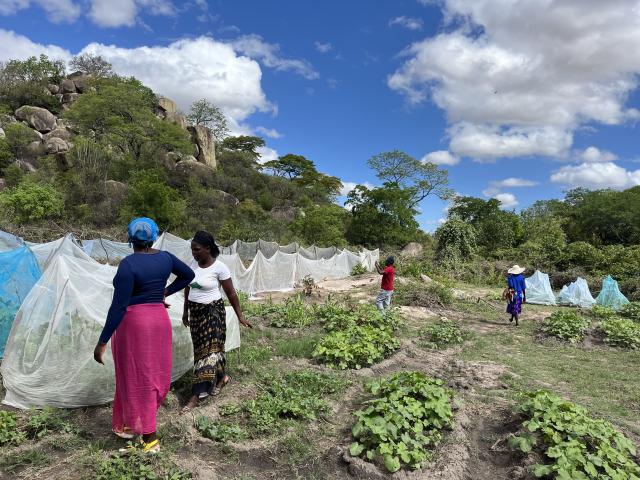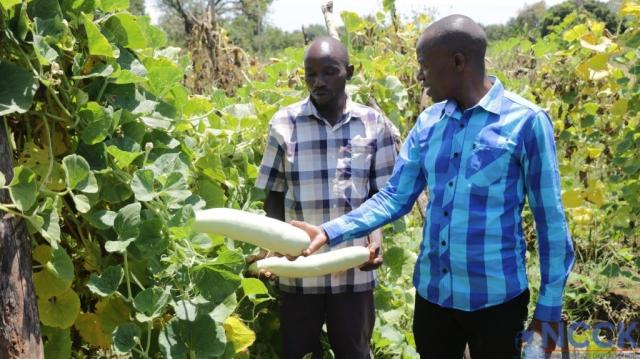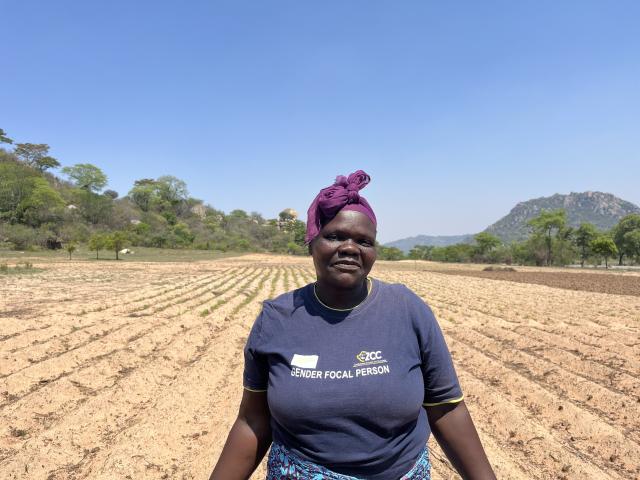Sustainable Development Goals 1 – No Poverty, 2 – Zero Hunger, 10 – Reduce Inequality

As a member of the Canadian Foodgrains Bank, the United Church works with global partners to address hunger by providing food during humanitarian emergencies, as well as on longer term projects working with farmers to feed their families and communities through agriculture and livelihood projects. But did you know that food security is about more than just food? It is ensuring that families have sustainable livelihoods to earn regular incomes to send their children to school, purchase household goods, and save money for the future. Food security also cannot be reached without achieving gender equality, as women are usually responsible for their family’s nutrition, earning income, and supporting their communities.
The United Church is partnering with the National Council of Churches of Kenya (NCCK) on the Conservation Agriculture project and the Zimbabwe Council of Churches (ZCC) through the Humanitarian, Early Recovery and Development project (HERD) to implement projects to address food insecurity in Kenya and Zimbabwe as a result of climate change, economic shocks, and lack of access to quality training and agricultural seeds and tools.
Increasing Yields to Improve Quality of Life
Over three years, NCCK worked with almost 4,000 rural farmers, both women and men, training them on conservation agriculture principles and strengthening livelihoods.

John Murithi earns his livelihood by growing crops, and participated in the conservation agriculture project in Chiakariga ward in Tharaka Nithi, Kenya. Before joining the program, John had been using conventional agricultural practices that produced low yields because of erratic rains, making it difficult to meet the basic needs of his family.
In 2019, when the rains were again low, John helped to harvest crops on land that belonged to a Conservation Agriculture lead farmer. John was impressed with what he saw! He decided to join the project and encouraged others farmers in his village to participate. NCCK agronomists have trained John on conservation agriculture practices that improve soil fertility, maintain moisture in the soil, and minimize soil disturbance. These new practices increased John’s harvest 8-fold, and led him to purchase two acres of land and one dairy cow. The income raised helped to pay for his five children’s school fees. Read more about John’s participating in conservation agriculture on the NCCK website.
Changing Lives Through Community Participation
Lives are changing for 450 households through the HERD project. Communities are receiving training from ZCC in conservation agriculture and gender equality, infrastructure development for better water access, entrepreneurship practices, and support with forming small savings-and-loans groups.

Rosemary is a lead farmer and gender accountability focal person participating in the HERD project in Bikita district in Masvingo Province. The ward where Rosemary lives in is one of the driest in the district. As lead farmer, Rosemary provides training and support to a group of ten farmers. During planting season, they work together to dig and plant seeds in each other’s fields where Rosemary noted that “working together as a group was an act of love”.
The gender trainings offered by ZCC have opened dialogue and deeper engagement between women and men. Rosemary said that before participating in the project they were afraid to talk to the men, but that has changed for the better because of the trainings. Gender focal persons also learned about how to support survivors of gender-based violence as well as facilitate conflict resolutions for community members and their households. Learn more about how the HERD project is changing people’s lives.